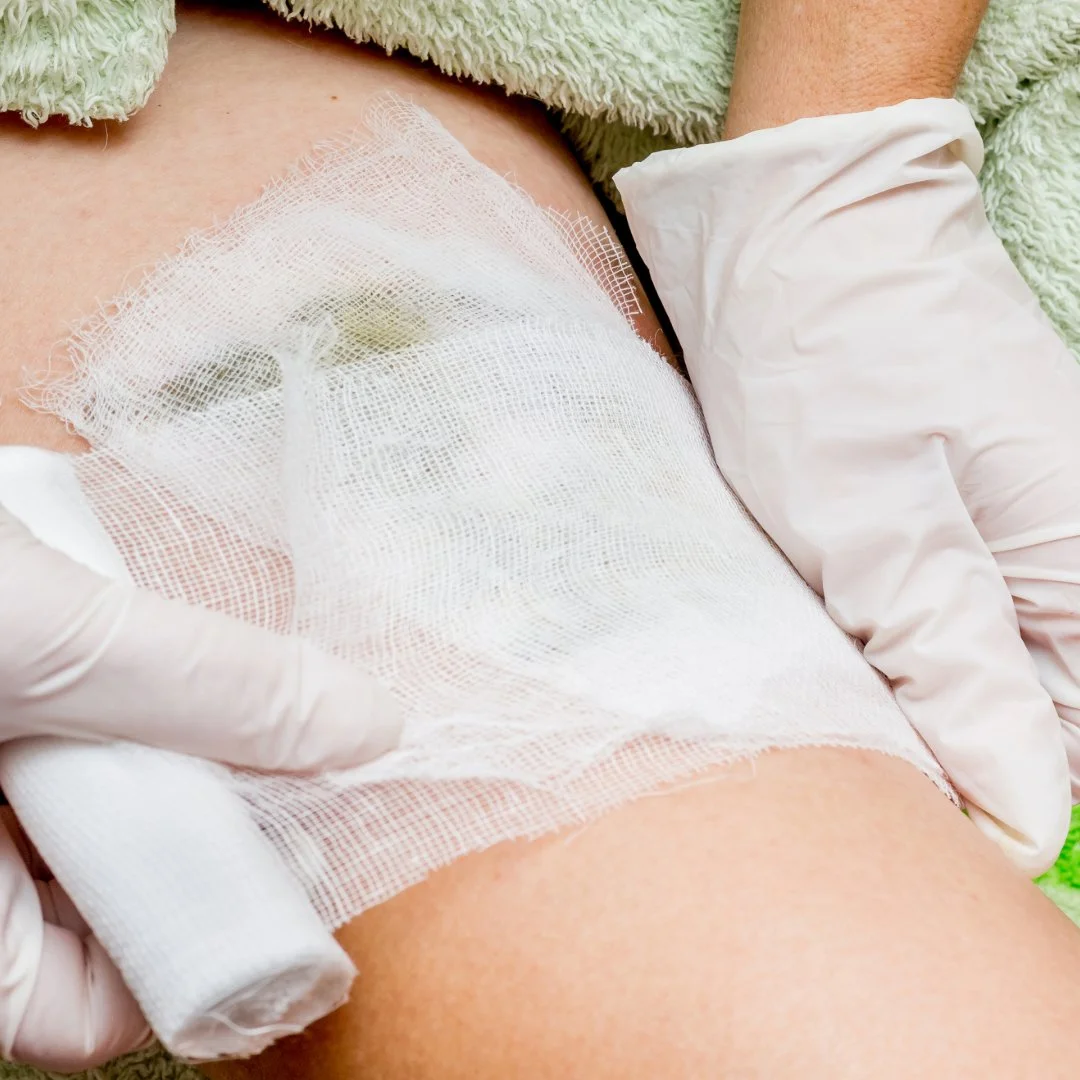Antimicrobial Wound Therapies
The Critical Role of Infection Control
Infection is one of the greatest threats to wound healing. Even when all other conditions are optimal, bacterial contamination can halt progress, cause serious complications, and in severe cases, lead to systemic infection. At Best Wound Care, our Nurse Practitioners utilize advanced antimicrobial wound therapies to control infection, reduce bacterial burden, and create the clean environment wounds need to heal.
Antimicrobial dressings and solutions don't just fight active infections—they also prevent infection in vulnerable wounds, making them an essential component of comprehensive wound care.
Understanding Wound Infection
When Bacteria Becomes a Problem
All wounds contain some bacteria. The critical question is whether the bacterial presence is helping, hindering, or actively harming the healing process.
Signs Your Wound May Need Antimicrobial Therapy:
Increased drainage or changes in drainage color
Foul or unpleasant wound odor
Redness or warmth spreading around the wound edges
Increased pain or tenderness
Delayed healing despite appropriate treatment
Increased swelling or inflammation
Wound tissue that appears unhealthy or discolored
Our Nurse Practitioners are trained to recognize these signs early and intervene promptly with appropriate antimicrobial therapies before minor bacterial overgrowth becomes a serious infection.
Our Options for Effective Infection Control
Best Wound Care utilizes a comprehensive range of antimicrobial products, selecting the most appropriate solution based on your wound's specific needs:
Silver-based Dressings
Silver has been used for wound care for centuries due to its broad-spectrum antimicrobial properties. Modern silver dressings release silver ions that are toxic to a wide range of bacteria, including antibiotic-resistant strains like MRSA. Silver-based products come in various forms—foams, alginates, and gauze—allowing us to match the antimicrobial benefits with the moisture management your wound requires.
Iodine Preparations
Iodine-based products provide powerful antimicrobial action against bacteria, fungi, and some viruses. Cadexomer iodine and other modern formulations release iodine slowly and sustainably, providing continuous antimicrobial protection while also absorbing wound exudate. These products are particularly effective for heavily colonized or infected wounds.
Medical-Grade Honey Dressings
Honey is a remarkable natural antimicrobial with unique healing properties. Medical-grade honey (particularly Manuka honey) creates an environment that is hostile to bacteria while simultaneously promoting tissue growth and reducing inflammation. At Best Wound Care, we use Medihoney frequently because it serves dual purposes—controlling bacterial burden while actively supporting the healing process. This makes it valuable not just for infected wounds, but for prevention and enhanced healing in many wound types.
Specialized Infection-Controlling Solutions
Beyond dressings, we utilize various topical antimicrobial solutions that can be applied directly to wounds or used in combination with other therapies. These solutions provide targeted infection control tailored to specific wound conditions.
Antimicrobials as Part of Comprehensive Care
Antimicrobial therapy is most effective when integrated into a complete wound care strategy. Our Nurse Practitioners don't simply apply antimicrobial products—they address all factors affecting your wound's ability to heal.
Debridement First In most cases, antimicrobial therapy begins with thorough wound debridement. Dead tissue and wound debris harbor bacteria and prevent antimicrobial agents from reaching the wound bed effectively. Our Nurse Practitioners first remove non-viable tissue, then apply appropriate antimicrobial dressings to the clean wound bed. This combination approach—mechanical removal of bacteria through debridement followed by chemical control through antimicrobials—provides the most effective infection management.
Combination Therapies Antimicrobial dressings work alongside other wound treatments. We may combine antimicrobial therapy with:
Compression therapy for venous ulcers with infection risk
Moisture management products to maintain optimal healing conditions
Advanced dressings that provide both antimicrobial action and wound protection
Other specialized treatments based on your wound's unique needs
Prevention and Treatment We use antimicrobial therapies in two contexts:
Active treatment when infection is present or strongly suspected
Preventive protection for high-risk wounds vulnerable to infection
This dual approach ensures wounds stay clean throughout the healing journey, not just when problems arise.
Why Antimicrobial Therapy Matters
When treating active infection, antimicrobial products remain in use until clear signs of infection have resolved—reduced drainage, improved wound appearance, decreased inflammation, and progression toward healing. For wounds at high risk of infection or those in contaminated environments, we may continue antimicrobial dressings throughout the healing process as a preventive measure. This proactive approach protects vulnerable tissue and maintains the optimal conditions for healing.
Prevents Serious Complications – Early infection control stops minor issues from becoming major problems
Supports Overall Health – Reducing wound bacterial burden decreases the risk of systemic infection
Accelerates Healing – Clean wounds heal faster than infected ones
Reduces Pain and Discomfort – Controlling infection often decreases wound-related pain
Enhances Treatment Effectiveness – Other wound therapies work better in a clean wound environment
Provides Peace of Mind – Knowing infection is being actively managed reduces worry for patients and caregivers
Contact us
Infection doesn't have to derail your wound healing journey. With expert assessment, appropriate antimicrobial selection, and integrated wound care strategies, our Nurse Practitioners provide the infection control your wounds need to heal successfully.
Contact Best Wound Care today to bring advanced antimicrobial wound therapies to your facility's patients.



